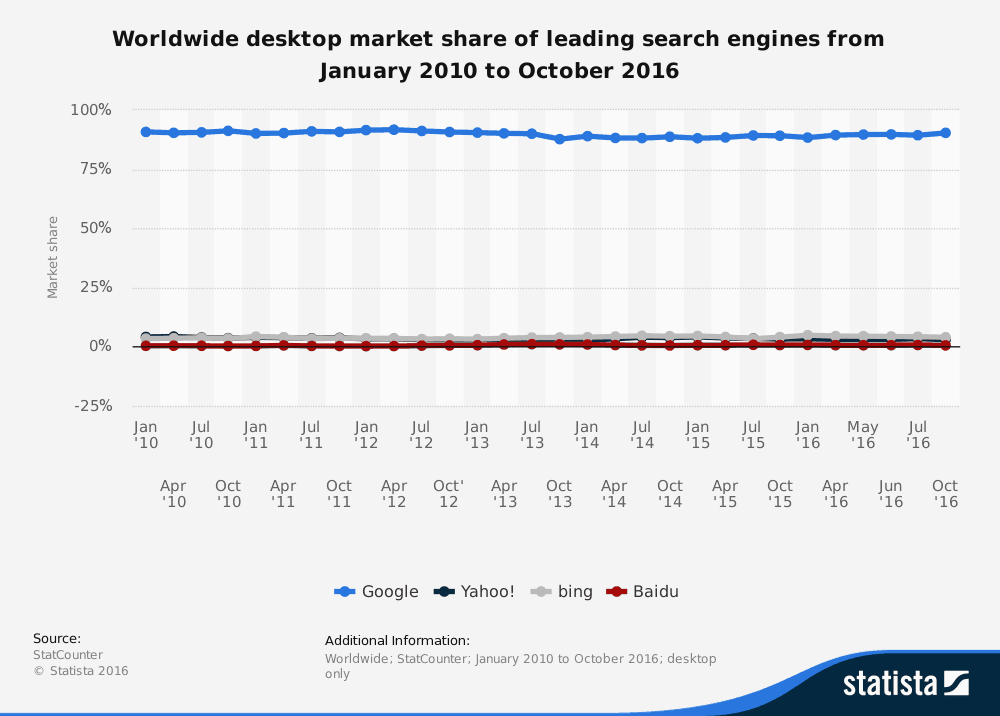Estimated Read Time: 10 Minutes
There is a common misconception that every business can benefit from and be successful at SEO. That is just not true. While it’s worth doing SEO if you’re a small business and there are outcomes that seem unfair at times, the amount of success you achieve is going to be directly proportional to the quality and quantity of effort you put in. I’ll discuss those items below and provide some tips for beginners to assess whether they’re ready to make the time and/or monetary investment.
I want to start with a folk tale my parents used to read to me when I was a kid because there’s a lesson to be learned from it. The book is called “The Little Red Hen”. It tells the story of a hard-working hen who gets no help preparing food but lots of volunteers when it comes time to eat it. She declines and they learn a lesson; you reap what you sow.

By Florence White Williams [Public domain], via Wikimedia Commons
- don’t know or haven’t had explained to them what is needed;
- don’t have the necessary skill sets on board or can’t pay to contract them;
- struggle to make the time to contribute in a sustained and meaningful way; or
- simply lose patience.
SEO is hard work and it is a slow process. There’s value in knowing that up-front. Why waste time, effort, and dollars if you know you can’t possibly fulfill the prerequisites for SEO success?
Before You Start
Businesses that do achieve success have reputable and differentiated brands. They work hand-in-hand with SEO experts to apply creativity, empathy, outreach, and technical and analytic expertise to earn their way to the top. They know their audience, get found on the Internet, and provide exceptional value. (More about that in a minute.)
If you own or represent a business that is serious about earning and sustaining a leadership position in your online market, there are a few things you need to know that will help you plan for success and mitigate the risk of disappointment or failure.
Tip #1 – First, Focus On Google
Google is the largest, most popular search engine in worldwide use today. With a few exceptions (in countries like China, Russia, and South Korea), 90% of the Internet-connected world searches for online information using Google.

Bing is slowly gaining ground but still not a prominent player. Yahoo penned a deal with Firefox in 2014 that helped save it from extinction but it is still nowhere near where it needs to be to effectively compete with Google.
Everyone has limited resources. Focus on Google.
Tip #2 – Architect Your Website for Search Engines
Design Your Site So It Gets Indexed
Second, your website can’t just be pretty. It has to be architected for search engines and search audiences.
When you submit a search query on Google, Google doesn’t scan the Internet looking for an answer. It would take too long and people don’t have that much patience. Instead, Google searches its own proprietary index of the Web.
Google’s index is a continuously updated and categorized inventory of all the content Google has been able to find on the Web. If Google can’t find your website, or if it runs into obstacles trying to navigate and read your content, you won’t get indexed or you’ll get indexed completely or accurately. You can use paid advertising (like Google Adwords) to get around that constraint and gain temporary visibility, but you won’t show up in the free Knowledge Graph, local, featured snippet, or organic search results. And while paid advertisements tend to dominate search results, they garner only 15% of clicks so paid advertising or pay-per-click (PPC), by itself, probably isn’t to get you the results you want and need.
All this means is if you’re not in Google’s index, you won’t show up in search results. And even if Google can find and completely and accurately index your website, you’re still not off the hook.
Design Your Site So It Can Be Viewed From Any Device

Google has been very clear in recent years that it expects websites to load fast and display well on any type of screen or device, and in particular, on mobile devices like smartphones and tablets. In fact, Google specifically recommends websites be built with a responsive design – a setup that allows one set of code to adapt and display well on any device.
Design Your Site To Be Secure
Google has also been clear about wanting communications between your browser and website to be encrypted (HTTPS) so information can’t be intercepted and used without your knowledge or permission. To incentivize business and website owners, in August 2016 it announced that switching your website over to HTTPS will give you a minor ranking boost. In December 2016, it updated its warning to say it will start putting a clear “Not secure” label next to destinations that use unencrypted HTTP connections rather than encrypted HTTPS connections.
Structure Your Website So It’s Easy to Find, Navigate and Skim
If it’s one thing I’ve learned over the years, it’s people are busy. Everyone has their own agenda and wants to get on with their life. One of the goals of your website should be to enable people being able to find what they came looking for quickly and easily. You can do that (and ensure your content gets found and indexed) with a proper website structure. Site structure refers to the way website content (applications, text, images, videos, music, and more) is grouped, interconnected, and presented to human and non-human visitors. It establishes the order in which content is discovered, accessed, interpreted, and used.
This is also a prerequisite for ensuring your site gets indexed by Google. Google also wants to do what it needs to do (index your site) quickly and easily. If your site is structured like spaghetti, there’s a good chance Google will abandon its effort prematurely leaving parts of your site unindexed and unable to be found when people are searching for your goods and/or services.
So you need to structure your website for search engines and people. This blog post explains how to do both.
Design Your Website To Scale
Lastly, Google can’t add you to its index or update its content unless your website is up all the time, accessible from anywhere, and able to scale and grow with the evolving needs and demands of your business and audience. Design your website so it can scale to meet those needs so you don’t get left behind or out altogether.
Tip #3 – Create Exceptional Content
The third need-to-know component of SEO is also driven by Google but focuses on your audience.
Google’s index is huge and growing. In January 2017 it had approximately 130 trillion indexed pages (including pages, blog posts, images, and videos). This poses several challenges for business owners.
- Google’s index is organized around pages, words, and phrases. Much like the index in the back of a book, it contains all the unique word combinations people use when they search and the unique address or URL of every published page, blog post, and/or image on the Internet that contains those words or a close equivalent.
- That means if you want to get found on the Internet, you need to know the words and phrases (keywords) your audience is searching for. You should have a unique, optimized piece of content for every word/phrase combination that satisfies a specific search intent or reason why someone conducts a search on Google.
- That content must be sought-after and extraordinary. It must be trustworthy, high quality, memorable, and useful. Why? Because searchers value their time and they don’t need to waste time on inadequate content. They literally have as much as 130 trillion other options!

* National Book Award finalists are examples of exceptional content. Image via Twitter (@nationalbook).
Your content has to be indexed and it can’t be commonplace or fluff. It must be exceptional. If it’s not, you won’t grab the attention of your search audience and you won’t earn the signals Google uses to decide who ranks on top. Visitors will hit the back button and refine their search.
Tip #4 – Your Content Has To Earn Links
Links are SEO gold. All things being equal, the more incoming links you have from unique and valuable sources, the higher you will rank.

Links Are Like Gold
You can’t buy or exchange links and expect to outrank the competition. There are rules against that and, even if you get away with it, it won’t be enough to deliver meaningful results.
You also can’t duplicate content. There are rules against that too. You can publish with your own unique spin or perspective on it so long as you give credit to the original author, but there’s no sense (or honor) in plagiarism.
That means links have to be earned. The best way to earn links is with exceptional content and content promotion.
Content promotion is when you figure where your audience likes to hang out online and then take advantage of those platforms to earn additional amplification, exposure, and links.
Publishing your content on your blog and/or social media channels just isn’t enough. Your content must be promoted and only exceptional content will earn amplification and links.
Tip #5 – Accept You Are Chasing a Moving Target
So, you have to focus on Google, architect your website for search engines, create and promote exceptional content, and earn links. We’re still not done. You also have to accept that you’re chasing a moving target.
- Google changes its ranking algorithm daily – at least 500-600 times a year.
- More than 576,000 hours of new content is added just to YouTube each day.
- Search terms and phrases, as well as search volumes, change daily.
- Links break, get removed, and dropped.
- Content gets quoted without attribution. It gets plagiarized and accidentally duplicated.
- And then there’s analytics SPAM. If you don’t maintain your website analytics filters, you won’t have any idea how many people are visiting your site, from where, when, how they found you, and what they’re doing after that.

In other words, there’s upkeep. You need to defend, preserve and protect your SEO investment. It is vulnerable and easily lost.
Are You Ready To Get Started?
I’ve shared five prerequisites or tips for SEO success:
- focus on Google;
- architect your website for search engines and visitors;
- publish exceptional content;
- promote your content in the places where your audience likes to hang out so you can earn exposure, amplification, and links; and
- defend, preserve and protect your investment with ongoing maintenance.
Now ask yourself,
- Are you doing any or all of these things now?
- Are you willing to do them yourself or to hire or contract someone else to do them for you?
- Are you open, honest, and forthcoming? Are you willing to share your opinions, expertise, and knowledge in the form of exceptional blog content?
- Does that information exist today or are you going to have to create it?
- Are you a good writer? Do you have time to write? If not, are you willing to hire or contract the services of a good writer?
- Are you patient? (SEO takes time.)
- How will you know if you’re making progress? Will you configure analytics to measure success and maintain SPAM filters so the data is meaningful? If not, are you willing and able to pay someone to do that for you?
So how can you be successful at SEO? You need commitment, patience, creativity, empathy, outreach, and technical and analytic expertise to earn your way to the top. You need a clearly differentiated brand and a continuous flood of sought-after, relevant, fresh, unique, specific, engaging, and valuable content.
It’s a long, slow process. Be sure to invest in finding the “right” partner to help you. You’re going to be spending a lot of time together. Funding, commitment, patience, and support comed from you. The other things can be taught or bought but not omitted.






Leave A Comment